It's estimated that only 41% of renters get their full security deposit back after renting. If you're a landlord, the security deposit you collect from your renters is a valuable form of insurance.
It ensures that you're protected against things like property damages, unpaid rent, and potential cleaning fees. While security deposits are important, there's also a lot of confusion surrounding them.
For example, how much are you allowed to charge for a security deposit? And what can you deduct from the deposit at the end of the lease?
It's vital to know the answers to these questions because if you ignore them you could end up breaking security deposit laws. So in this guide, we'll break down everything you need to know about security deposits.
The Collection of Security Deposits
In the past, there were no limits on how much a tenant security deposit could be. However, recently a law was passed in Colorado that makes it illegal to charge more than two monthly rent payments.
However, just because you can charge two months' rent doesn't mean you should. We recommend sticking with the standard one-month rent for your deposit.
The Holding of Security Deposits
Once you have the deposit, you're responsible for securing the funds in a bank account.
The good news is that this doesn't need to be a separate account. However, you will need to provide your tenant with the banking information for where it's being held, as well as financial reporting.
The Returning of Security Deposits
Here in the state of Colorado, you have a time frame that needs to be followed when it comes to the deposit return. Specifically, you have one month after the termination of the lease to return it.
In some cases, you can get this extended to sixty days. It's quite common for landlords to deduct things from the security deposit when returning them. However, you need to make sure that the deductions are allowed or you could end up in trouble.
What Deductions Are Allowed?
Unfortunately, you can't deduct things like normal wear and tear from the security deposit. This includes things like light scuff markets or dirty carpets. However, if the damage is beyond normal wear and tear, you can deduct the cost of it.
This includes things like:
- Holes in the wall
- Broken windows
- Broken appliances
- Large stains on the carpets
What's more, the deposit can also be used to cover unpaid rent or cleaning fees if the rental unit is filthy.
Make sure you do a careful landlord inspection and note everything you'll deduct. You will need to make an itemized list to provide to the tenant.
Need Help With Security Deposits in Westminster? Contact PMI Mile High
We hope this guide helped you learn more about landlord security deposit requirements in Westminster, CO. Here at PMI Mile High, we know that security deposits can often lead to a lot of disputes between managers.
With our services, you never need to worry about another heated exchange with your tenants. We take care of everything for you. So if you're ready to make your life as a landlord easier, get in touch with us today.

.webp)
